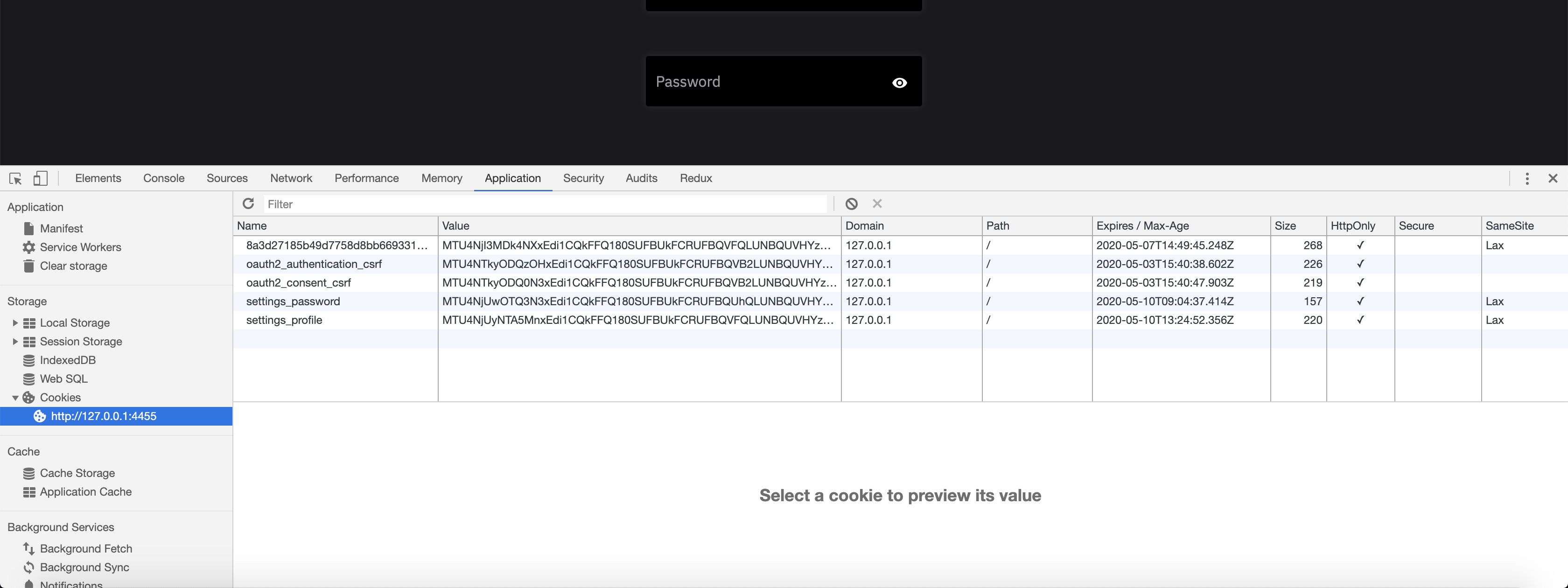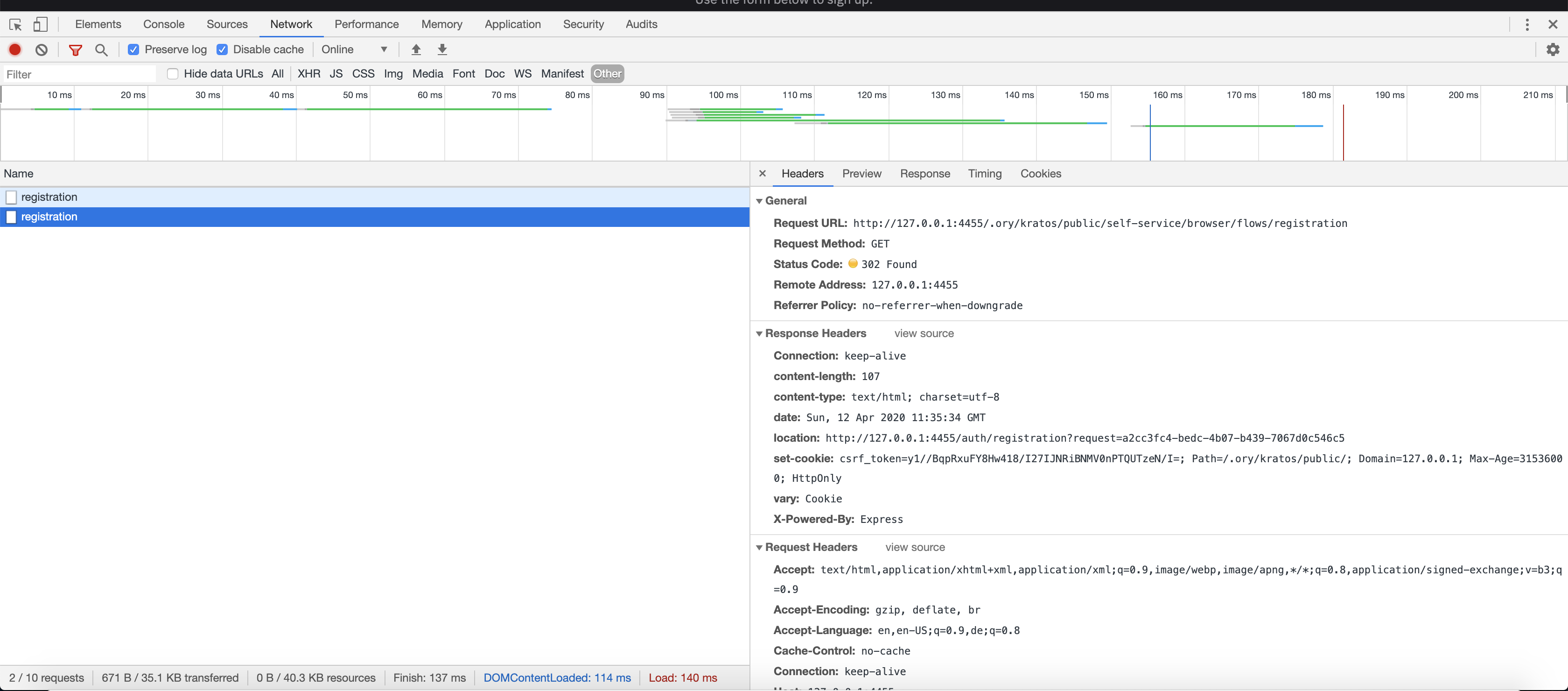CSRF troubleshooting
When you get 401 Unauthorized or 400 Bad Request responses when your application sends requests to Ory Identities APIs, it is
likely that the Ory anti-Cross-Site Request Forgery (CSRF) mechanisms are triggered.
This document describes common scenarios where you can face CSRF problems and gives advice for solving them.
To learn more about CSRF and how Ory Identities protects against it, read the Ory threat models and security profile documentation and the OWASP attack description.
To debug issues related to cookies or anti-CSRF defenses, use tools like the
Chrome DevTools. In Chrome DevTools, go to the Application tab and open the
Cookies section. Look for Cookie and Set-Cookie HTTP headers. Inspecting the Network tab and looking for the same
headers can also help you find the root cause of your problems.
Ory Identities uses HTTP cookies to store sessions when accessed via a browser. Learn more about the cookie-based security model in Ory.
Ory Identities
Accessing cookies from client-side JavaScript
The cookies Ory Identities sets can't be accessed directly from client-side JavaScript because the HttpOnly flag is set. This
flag can't be modified.
Accessing APIs from client-side JavaScript / AJAX
When building Single-Page Apps (SPAs) in Angular or React.js and you want the application to access the Ory Identities Public API you need to configure your AJAX request to include cookies, because AJAX doesn't send cookies by default default.
For example, when using the browser's fetch function, you need to set
credentials: 'include'.
Accessing APIs from a server-side application
When building a server-side application, make sure to include the Cookie header from the client when fetching the self-service
flows, for example, GET /self-service/login/flows?id=...:
export default (req: Request, res: Response) => {
// ...
.getLoginFlow({ id: flow, cookie: req.header("cookie") })
}
A complete example looks as follows:
Without forwarding the Cookie HTTP header you can't fetch the flow due to a security error. This prevents leaks of personal
information when users copy and paste, for example, the login URL.
Ory OAuth2
Before starting to debug cookie and CSRF issues, make sure to check out the Chrome Developer Tools (or any comparable technology) Cookies tabs in the Application tab

as well as the network tab - look for Cookie and Set-Cookie HTTP Headers:

Running flows in separate browsers or browser windows
You are running the OAuth2 flow in separate browsers, or in a browser with incognito mode. The Brave browser is also known for notoriously discarding cookies when used in "No-Tracking" mode.
Running multiple OAuth2 flows simultaneously
You are trying to do two OAuth2 flows at the same time in the same Browser.
Cookie same-site mode
You have changed the Cookie SameSite behavior. If this is the default value (you didn't change it), this shouldn't be an issue.
Using AJAX to call /oauth2/auth
You can't call /oauth2/auth using an AJAX request. It isn't allowed and not possible with OAuth2. This endpoint can only be
accessed using a normal browser request by clicking a link or redirecting the end-user's browser to that endpoint.
Further reading
Read this document for CRSF troubleshooting specific to self-hosted Ory Kratos Identity Server instances.